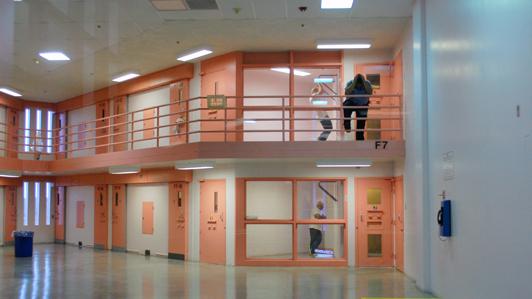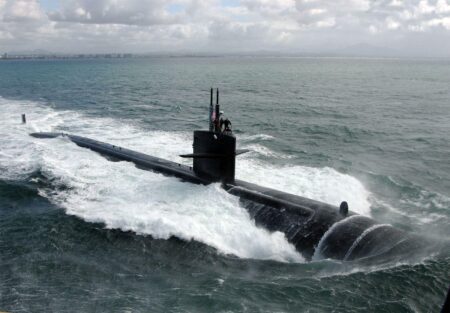France’s Ambitious Plan for a High-Security Prison Near the notorious Devil’s Island
In a significant and contentious growth, France is reportedly set to build a high-security prison reminiscent of Supermax facilities close to the infamous Devil’s Island penal colony. This location has long been emblematic of the nationŌĆÖs historical penal practices. This initiative is part of FranceŌĆÖs broader criminal justice reform efforts aimed at tackling modern issues such as prison overcrowding and security concerns, while also reigniting discussions about rehabilitation versus punitive measures. As more information surfaces regarding this proposed facility and its potential effects on inmates and surrounding communities, it raises critical questions about the legacy of Devil’s Island and how France approaches incarceration in todayŌĆÖs world. In this article, we delve into the motivations behind this ambitious project, its historical significance, and the possible societal repercussions of establishing an ultra-secure prison in such a storied locale.
France’s Controversial Prison Initiative
The proposal to create a high-security facility near devil’s Island has sparked intense debate both within france and internationally. Proponents argue that this new prison will effectively address escalating concerns related to terrorism and serious criminal activities in the area by providing law enforcement with essential tools for managing high-risk offenders. They assert that modern security technologies will be integrated into this facilityŌĆötechnologies that were absent during the era of DevilŌĆÖs IslandŌĆöthus reinforcing its potential as a deterrent against organized crime.
On the other hand, critics view this initiative as an alarming regression towards darker periods in French history marked by human rights abuses and prisoner mistreatment. The notorious reputation of devilŌĆÖs Island amplifies thes concerns; it was known for its brutal conditions that inflicted suffering on inmates. Opponents advocate for reforms within FranceŌĆÖs justice system instead, suggesting that funds would be better spent on rehabilitation programs rather than constructing new prisons altogether. Key arguments against this proposal include:
- Historical Significance: The troubling legacy associated with Devil’s Island evokes memories of past injustices.
- Human Rights Issues: There are fears that establishing such a facility may lead to cruel treatment practices.
- Resource Distribution: Critics contend financial resources should prioritize education and rehabilitation initiatives over new construction projects.
Rehabilitation vs Human Rights: A Shift in Corrections Policy
The establishment of a Supermax-style prison near one of historyŌĆÖs most infamous penal colonies indicates a significant shift in France’s approach to criminal justiceŌĆöfavoring extreme confinement over rehabilitative efforts. Detractors argue that such facilities could worsen issues related to prisoner rights by fostering environments focused more on punishment than reformative strategies.The implications for rehabilitation are profound; typically associated with isolation rather than integration, Supermax models limit access to vital rehabilitative programs and mental health services necessary for reducing recidivism rates.
This shift prompts critical inquiries regarding how public safety considerations can coexist with fundamental human rights protections for incarcerated individuals within these institutions.
If implemented, these plans necessitate reevaluating corrections policies concerning their alignment with human rights standards. Important factors include:
- Access to Rehabilitation Services: Ensuring inmates have opportunities for educational advancement and therapeutic support.
- Dignity Considerations: Upholding prisoners’ rights even within maximum-security environments is crucial.
- Efficacy Against Recidivism Rates: Assessing whether Supermax prisons effectively reduce re-offending compared to rehabilitative methods remains essential.
- Adequate Compliance with International Norms: Adhering strictly to established global standards regarding prisoner treatment is imperative.
Tackling these implications requires thoughtful dialog among policymakers, legal professionals, and advocates dedicated to human rightsŌĆöemphasizing ethical frameworks while navigating complex intersections between public safety needs and individual liberties.
Local & Global Responses: Weighing Security Needs Against Ethical Standards
The decision-making process surrounding the construction of a Supermax-style prison adjacent to historic DevilŌĆÖs Island has elicited diverse reactions from local communities as well as international observers. Supporters assert that building such facilities is crucial for managing violent offenders effectively while safeguarding public welfare; they believe investing in modernized infrastructure will ensure dangerous individuals are housed securely according┬Āto their specific requirements.
Key points raised by supporters include:
- A boost in security measures could lead┬Āto decreased violence within prisons themselves;
ConverselyŌĆŗ , opponents express grave ethical reservations about situating another high-security institution at such an emotionally charged site . They caution against what might appear like regression concerning humane treatment principles historically upheld throughout French society . Critics emphasize urgent calls toward complete reforms prioritizing restorative approaches over punitive ones , advocating instead broader conversations addressing contemporary ethics surrounding incarceration practices . Significant arguments presented by detractors encompass:
- the historical weight carried by devil island risks overshadowing ethical considerations involved ;
- The possibility exists further stigmatizing vulnerable groups already marginalized inside current systems ;
- Public backlash may arise challenging government priorities relating directly towards incarceration policies overall ;
Conclusion: Navigating Complexities Ahead
France ‘ s plan involving creation super max style penitentiary nearby historic site devil ‘ s island ignites multifaceted discourse examining nation ŌĆÖ s stance crime punishment . while advocates maintain secure habitat provided dangerous offenders enhances community protection , dissenters raise alarms regarding ramifications impacting fundamental human dignity alongside legacies tied once synonymous cruelty endured prisoners past eras . As country confronts intricate narratives shaping ongoing challenges faced correctional systems today ,decisions made moving forward undoubtedly leave lasting impressions both locally globally influencing dialogues around best practices governing corrections overall future generations alike .




